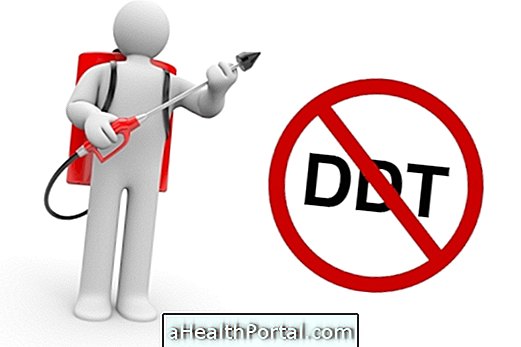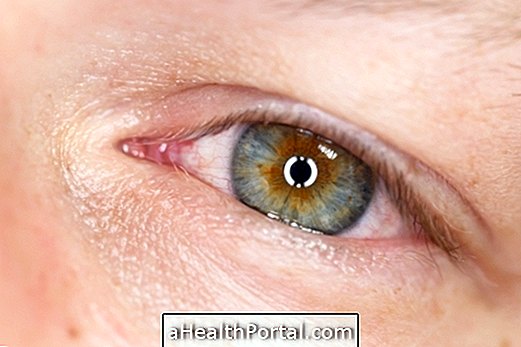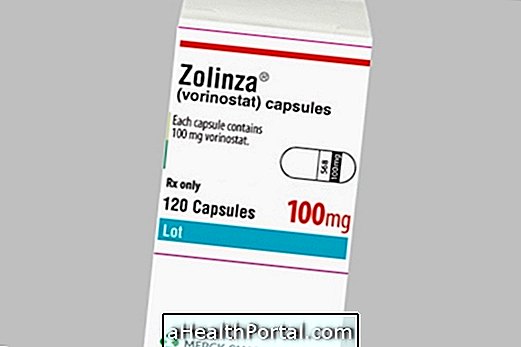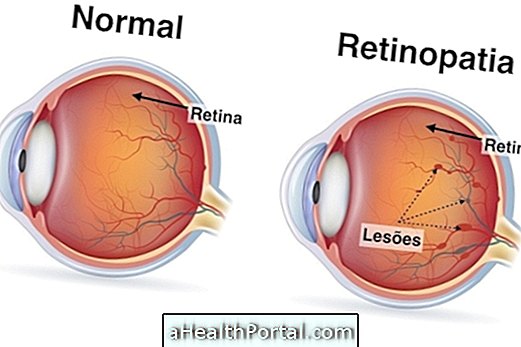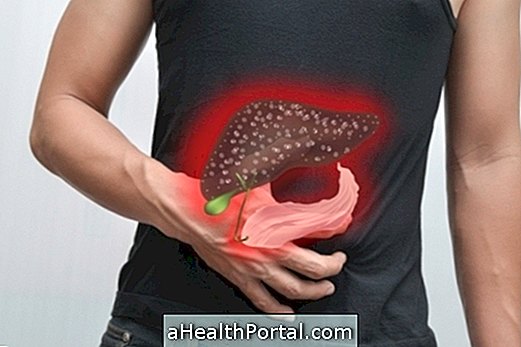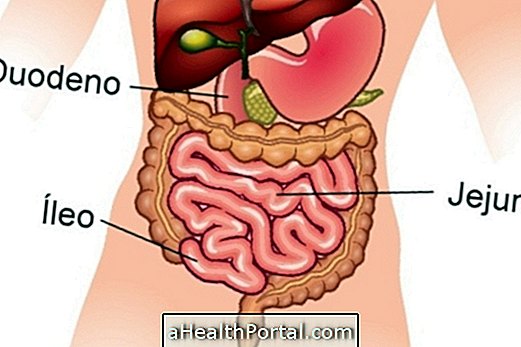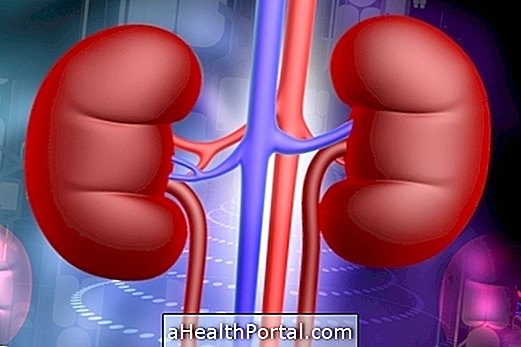Some signs that may indicate depression during childhood include an unwillingness to play, bed wetting, frequent complaints of tiredness, headache or belly pain, and learning difficulties.
These symptoms may go unnoticed or be confused with tantrums or shyness, but if these symptoms remain for more than 2 weeks it is advised to go to the pediatrician to make an assessment of the state of psychological health and check the need to start treatment.
In most cases, treatment includes sessions of psychotherapy and use of antidepressant medications, but support from parents and teachers is key to helping the child to get out of depression, as this disorder can hamper the development of the child.
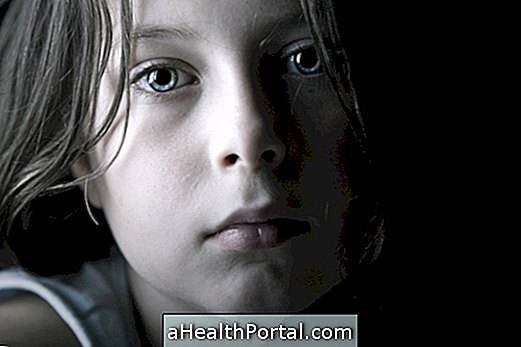
Signs that may indicate depression
The symptoms of childhood depression vary with the age of the child and their diagnosis is never easy, and a detailed evaluation by a pedopsychiatrist is necessary. However, some signs that may alert parents include:
- A sad face, with dull , unsmiling eyes and a fragile, limp body, as if he were always tired and staring into the void;
- Unwillingness to play alone or with other children;
- Much drowsiness, constant fatigue and no energy at all;
- Birras and irritability for no apparent reason, looking like a prank child, with bad mood and bad posture;
- Cry easy and exaggerated, due to exaggerated sensitivity;
- Lack of appetite that can lead to weight loss, however in some cases may also arise huge craving for sweets;
- Difficulty sleeping and many nightmares;
- Fear and difficulty separating from mother or father;
- Feeling of inferiority especially in relation to the friends of the day care center or school;
- Poor income in school, may have red notes and lack of attention;
- Urinary and fecal incontinence, after having already acquired the ability not to wear a diaper.
Although these signs of depression are common in children, they may be more specific to each child's age.
6 months to 2 years
The main symptoms of depression in early childhood, which occurs until age 2, are refusal to eat, light weight, short stature, and delayed language and sleep disorders.
2 to 6 years
At pre-school age, which occurs between 2 and 6 years of age, children in most cases have constant tantrums, too much fatigue, little desire to play, lack of energy, bed wetting, and involuntary feces elimination.
In addition, they may also find it very difficult to separate themselves from the mother or father, avoiding talking or living with other children and remaining very isolated. There may also be intense crying and nightmares and difficulty falling asleep.
6 to 12 years
At school age, which occurs between 6 and 12 years of age, depression manifests itself through the same symptoms previously mentioned, besides being difficult to learn, poor concentration, red notes, isolation, exaggerated sensitivity and irritability, apathy, lack of patience, headache and stomach pain and changes in weight.
In addition, it is often a feeling of inferiority, which is worse than other children and constantly says "no one likes me" or "I do not know anything" phrase.
In adolescence, the signs may be different, so if your child is over 12 years old, read the symptoms of depression in adolescence.

How To Diagnose Childhood Depression
The diagnosis is usually made through tests performed by the doctor and analysis of drawings, as the child in most cases can not report that he is sad and depressed and therefore parents should be very attentive to all symptoms and tell the doctor to facilitate the diagnosis.
However, diagnosis of this disease is not easy, especially as it can be mistaken for personality changes such as shyness, irritability, moodiness or aggression, and in some cases parents may even consider normal behaviors for their age.
In this way, if a significant change in the child's behavior is identified, such as crying constantly, getting very irritated or losing weight for no apparent reason, one should go to the pediatrician for the chance of being evaluated for psychological change.
How is the treatment done?
To cure depression in childhood, it is necessary to have the pediatrician, psychologist, psychiatrist, family members and teachers follow up and treatment should last at least 6 months to avoid relapses.
Normally, until the age of 9 the treatment is only done with psychotherapy sessions with a child psychologist. However, after that age or when you can not cure the disease with psychotherapy alone, it is necessary to take antidepressants, such as fluoxetine, sertraline or paroxetine, for example. In addition, your doctor may recommend other remedies such as mood stabilizers, antipsychotics or stimulants.
Usually the use of antidepressants only starts taking effect after 20 days of taking and even if the child no longer presents symptoms should maintain the use of the remedies to avoid a chronic depression.
To help with recovery, parents and teachers should collaborate in the treatment, encouraging the child to play with other children, play sports, participate in outdoor activities and praise the child constantly.
How to deal with the depressed child
Living with a child with depression is not easy, but parents, family members and teachers should help the child overcome the illness so that it feels supported and is not alone. Thus, one should:
- Respect the child's feelings, showing that they understand them;
- Encourage the child to develop activities that he likes without causing pressure;
- Praise the child constantly for all small acts and not correct the child before other children;
- Pay close attention to the child, stating that they are there to help you;
- Bring the child to play with other children to increase interaction;
- Do not let your child play alone, or stay alone in the bedroom watching TV or playing video games;
- Encourage eating every 3 hours to stay nourished;
- Keep the room comfortable to help the child fall asleep and sleep well.
These strategies will help the child gain confidence by avoiding isolation and improving their self-esteem, helping the child to heal depression.
What Causes Childhood Depression
In most cases, depression in childhood occurs due to traumatic situations such as constant family discussions, divorce from parents, change of school, lack of contact with the parents or death.
In addition, maltreatment such as rape or daily living with alcoholic parents or drug dependents may also contribute to developing depression.

